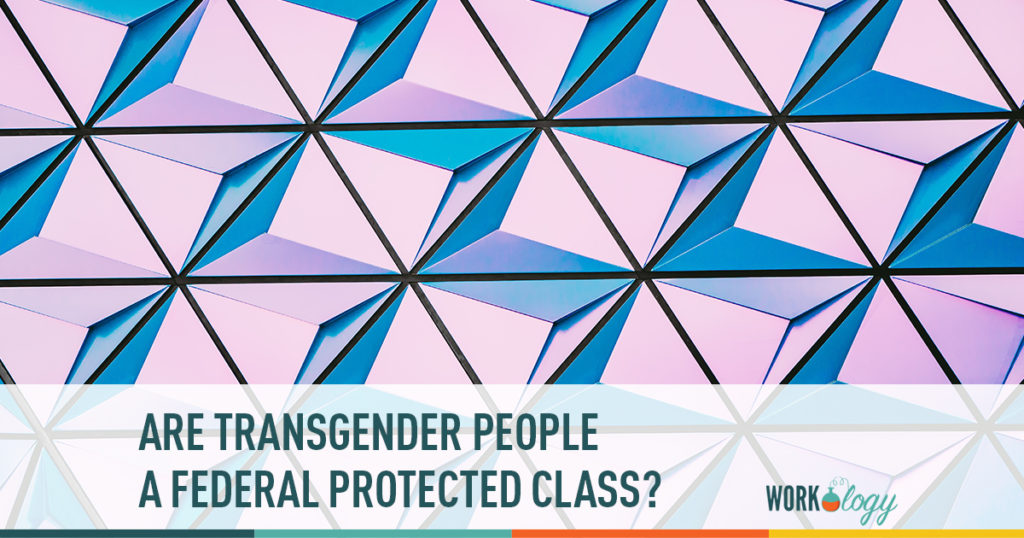Last week, U.S. District Judge Marsha Pechman of the Western District of Washington ruled that transgender people are a protected class. The ruling was in response to the Trump administration’s move to ban transgender people from serving in the military, and it effectively stops that ban, in its current from, in its tracks.
The administration will have to move very carefully, should it seek to regroup and approach the ban from another angle – because any legislation that discriminates against the employment of protected classes is highly scrutinized by the court, the EEOC, and by employment lawyers watching for precedent setting opportunities.
What Is a Protected Class?
The court defined transgender people as being a protected class because of the long history of severe discrimination they have suffered. It said,
The Court also rules that, because transgender people have long been subjected to systemic oppression and forced to live in silence, they are a protected class. Therefore, any attempt to exclude them from military service will be looked at with the highest level of care, and will be subject to the Court’s strict scrutiny.
Protected classes, which can be created at both the federal and state level, are immutable – that is unchangeable – characteristics that employers cannot use as the basis for discrimination. They include:
- Race
- Ethnicity
- Religion
- National origin or ancestry
- Citizenship
- Sex
- Age
- Physical or mental disability
- Veteran status
- Genetic information
But what does discrimination against protected classes look like? Employment law defines a number of ways that employers can, by design or neglect, discriminate against protected classes, and that includes everything from how you hire, to how you train, to what your workplace looks like.
- Employers cannot list preferences against employing protected classes in job posts or ads, have formal or informal practices that would screen out protected classes during the recruitment and hiring process.
- They allow bias against protected classes to influence their decisions about giving referrals, assignments, promotions, raises, or discipline.
- They must make reasonable accommodations for people with disabilities and for religious practices, so long as they don’t cause excessive difficulty or expense.
- They cannot design any aspect of the workplace, including training and dress code, such that it would discriminate against protected classes.
What Does It Mean for Transgender People
Last month, the Sixth Circuit court ruled that Title VII extends to protecting transgender people, on the basis that discrimination against transgender people could not legally be distinguished from other forms of already banned discrimination. Specifically, it ruled that if discrimination based on sex and associated gender norms was banned (and it is), than discrimination against transgender and transitioning people is too.
The ruling by the Western District of Washington isn’t just in line with that of the Sixth Circuit, as well as previous decisions by the Second and Seventh Circuits, but it seems to expand the logic of why transgender people can’t be discriminated against. It’s not just that moving against transgender people is another form of sex and gender discrimination, but that transgender people specifically experience a particularly brutal form of employment discrimination.
The immediate effect of this ruling is that the ban on transgender people serving in the military has been halted, but transgender people aren’t a federal protected class, at least not yet. With that said, the Supreme Court will be the next step for this, or future suits, and there seems to be a strong chance that in the next few years, Title VII will be definitively expanded to ban discrimination against transgender people.








